Emails call DFAT’s decisions over travel warnings into question after Fiji drink-spiking incident
Damning emails have called DFAT’s decisions over travel warnings into question after seven people, including four Aussies, fell seriously ill at a five-star hotel in Fiji.
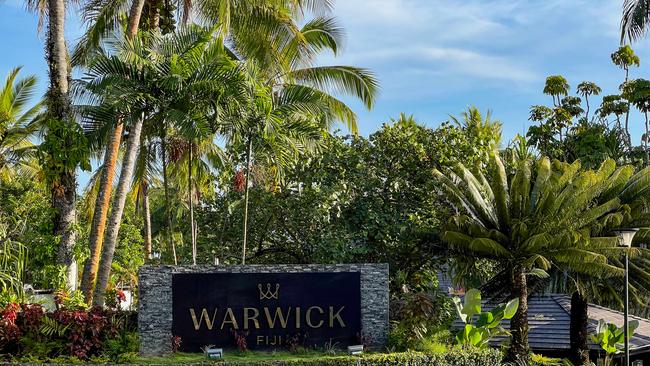
National
Don't miss out on the headlines from National. Followed categories will be added to My News.
Explosive emails reveal DFAT officials jumped the gun when issuing urgent drink spiking and methanol poisoning cautions for Fiji, publishing the travel warnings on all Smartraveller social media platforms and sending them directly to email subscribers.
Seven days later, DFAT staff found out there were no confirmed cases of methanol poisoning or drink spiking in Fiji. Rather than using those same platforms and email lists to tell travellers the source of the outbreak actually remained unknown, they decided to only update the advice on the Smartraveller website to keep it “low key”.
The revelations were laid bare in a tranche of emails between DFAT staffers between December 15 and 27, exclusively obtained by this masthead under Freedom of Information. The names of those involved in the exchanges were largely redacted from the documents.
Once Australia published the warnings, other countries including the UK followed suit.
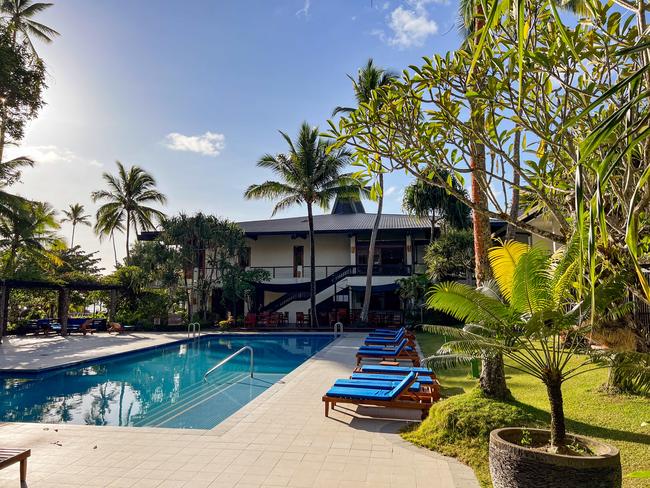
Tourism Fiji claims that DFAT’s decision not to publicise that the warnings relating to methanol poisoning had largely been withdrawn had a dramatic impact on Fiji’s economy.
CEO of Tourism Fiji, Brent Hill, said it was a “really difficult” time and bookings early this year were down.
The nation is heavily reliant on tourism, contributing about 40 per cent of GDP and employing more than 150,000 people in a population just shy of one million.
At the time, Fiji’s government pleaded with Australia to downgrade the warnings.
The situation unfolded on December 15 when seven holidaymakers, including four Australians and two Americans, were hospitalised after drinking pina coladas at the Warwick Resort on Fiji’s Coral Coast.
Two were intubated and placed on life support in ICU but most were discharged over the following days, including Australian mother and daughter Tanya Sandoe, 56, and Georgia Simpson-Sandoe, 19, who returned to Sydney the following day, on December 16.
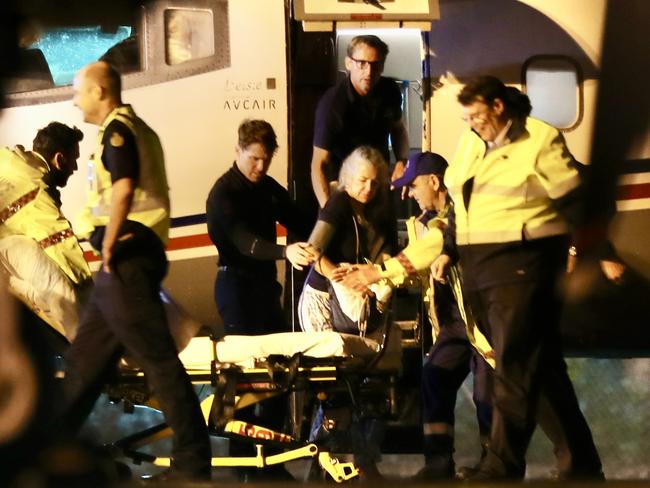
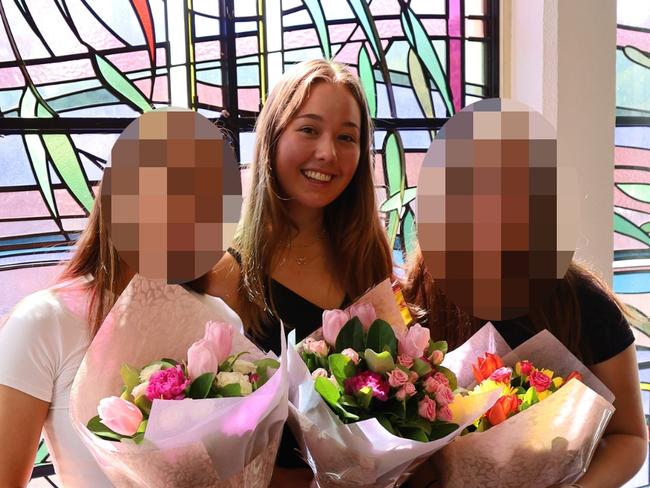
Staff at Latouka Hospital had told the Australian government the tourists were being treated for suspected methanol poisoning, but they were waiting on toxicology reports to confirm. DFAT didn’t wait for those results before racing to warn people about travelling to Fiji.
Those toxicology reports later revealed none of the travellers had consumed methanol or illicit drugs.
The incident came just weeks after Australian teenagers Holly Bowles and Bianca Jones died from methanol poisoning while holidaying in Laos, along with four other foreign nationals. DFAT officials referenced the Laos tragedy in correspondence about the hospitalisations in Fiji.

Emails between DFAT officials show the government found out about the incident from its Suva posting at about 11.30am on December 15. Within 25 minutes, the director of DFAT’s travel advice section was drafting changes to the travel advice.
“Grateful for [Suva] post views on an update to Fiji travel advice as per below. This is the standard language we have been adding to many SE Asia destinations following the Laos drink spiking incident,” they wrote in a lengthy email to about ten colleagues.
The draft advice had paragraphs of warnings about drink spiking and methanol poisoning. By 2.54pm, the updated advice had been approved.
“Any issues for this update? This is similar language that we have added to SE Asia in recent weeks,” the Travel Advice Section director asked in an email to a number of colleagues.
“This would go out as an ad hoc update, (email to subscribers) along with social media on Facebook and twitter.”
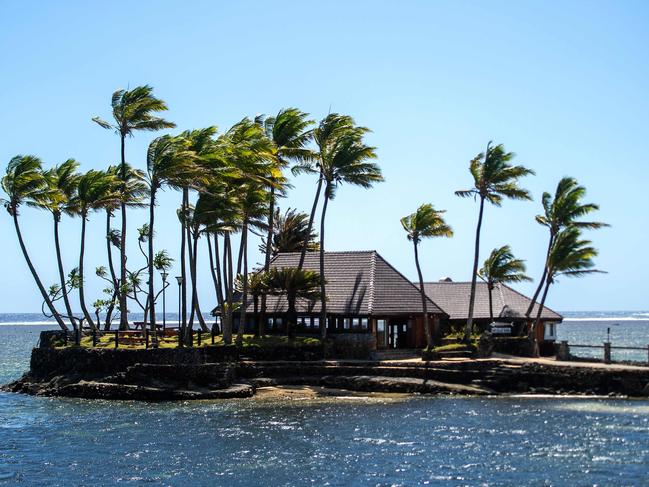
The updated advice comprised draft social media posts, along with warnings that read: “Be alert to the potential risks around drink spiking and methanol poisoning through consuming alcoholic drinks. Get urgent medical help if you suspect drink spiking.”
Draft social media posts read: “Be alert to the potential risks around drink spiking and methanol poisoning through consuming alcoholic drinks in #Fiji. Get urgent medical help if you suspect drink spiking.”
By December 18, it was widely reported in the media that the tourists had not consumed methanol or had their drinks spiked. Emails show DFAT staffers started drafting updates to the methanol warnings two days later, on December 20.
“I’ve left a voice message to follow up yesterday’s flurry of activity to check if there was an update to the progress of the Fiji police investigations on possible causes of the drink spiking case?” one employee wrote.
“We’re standing by for any [travel advice] update that may be required – options and approach below. We’re not rushing Post, we’ll be guided by your advice and timing.”
They gave two options for updates. For option A, they suggested a soft launch of the update with no social media or email coverage.
“We could do this a technical update / date change (given there is no new information to this update) – this means it would just be an update to the website (no email to subscriber and no social media),” they wrote.
The details of Option B were redacted in the documents.
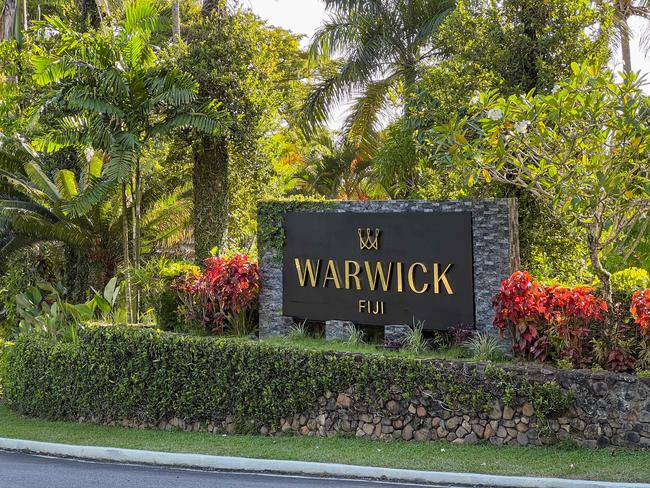
On December 22, at about 11.30am, another email was sent to DFAT workers. It said: “[Suva] post has received a copy of the outstanding blood test results (appears to be for three of the four affected Australians) which we believe shows no methanol or illicit drugs.”
At 2.55pm, a DFAT official replied: “To keep it low key we would suggest option A below (my advice).”
Despite the downgraded travel warnings, the original methanol poisoning and drink spiking advice is still visible on social media and in search engines.
The reason seven tourists were hospitalised in Fiji on December 15 remains shrouded in mystery.
Mr Hill, the Tourism Fiji CEO, acknowledged the tourists were ill and had a negative holiday experience. He also said methanol poisoning at a 4.5-star resort was always an implausible conclusion.
“The incident in December where tourists developed medical symptoms was really difficult for the tourism industry. It was compounded by the tragic events in Laos that had only happened a few weeks prior, that had people immediately concluding that the situation here in Fiji was the same,” he said.
“Right from the initial discussions with the medical professionals and the hotel, it seemed very implausible it was alcohol poisoning, due to the limited number of people who were ill, at a 4.5-star hotel that has operated for many years successfully.”




